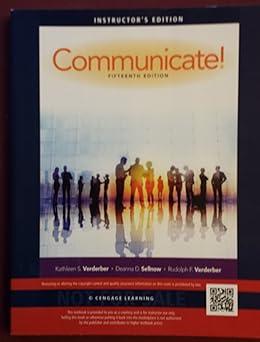2. Assumed Similarity or Difference. When we cross into an unfamiliar cultural environment, we might assume that
Question:
2. Assumed Similarity or Difference. When we cross into an unfamiliar cultural environment, we might assume that the norms that apply to our culture will also apply in the new one. When traveling internationally from the United States, for example, many people expect to eat their familiar hamburgers and fries and to be provided with rapid service when ordering. Likewise, they may be annoyed when shops and restaurants close during the early afternoon in countries that observe the custom of a siesta.
It can be just as great a mistake to assume that everything about an unfamiliar culture will be different. For example, Marissa, a Mexican-American student from California who is studying at a small private college in Vermont, may feel that no one understands her and her experiences. As she makes friends, however, she may learn that while Rachel, who is Jewish, didn’t have a quinceañera party, she did have a bat mitzvah celebration, and Kate, who is Irish Catholic, had a big confirmation party. While these occasions are different, each rite celebrates a coming of age. As Marissa makes these and other connections, she will become more comfortable in her new environment.
Step by Step Answer:

Communicate
ISBN: 9781305502819
15th Edition
Authors: Kathleen S. Verderber, Deanna D. Sellnow, Rudolph F. Verderber






